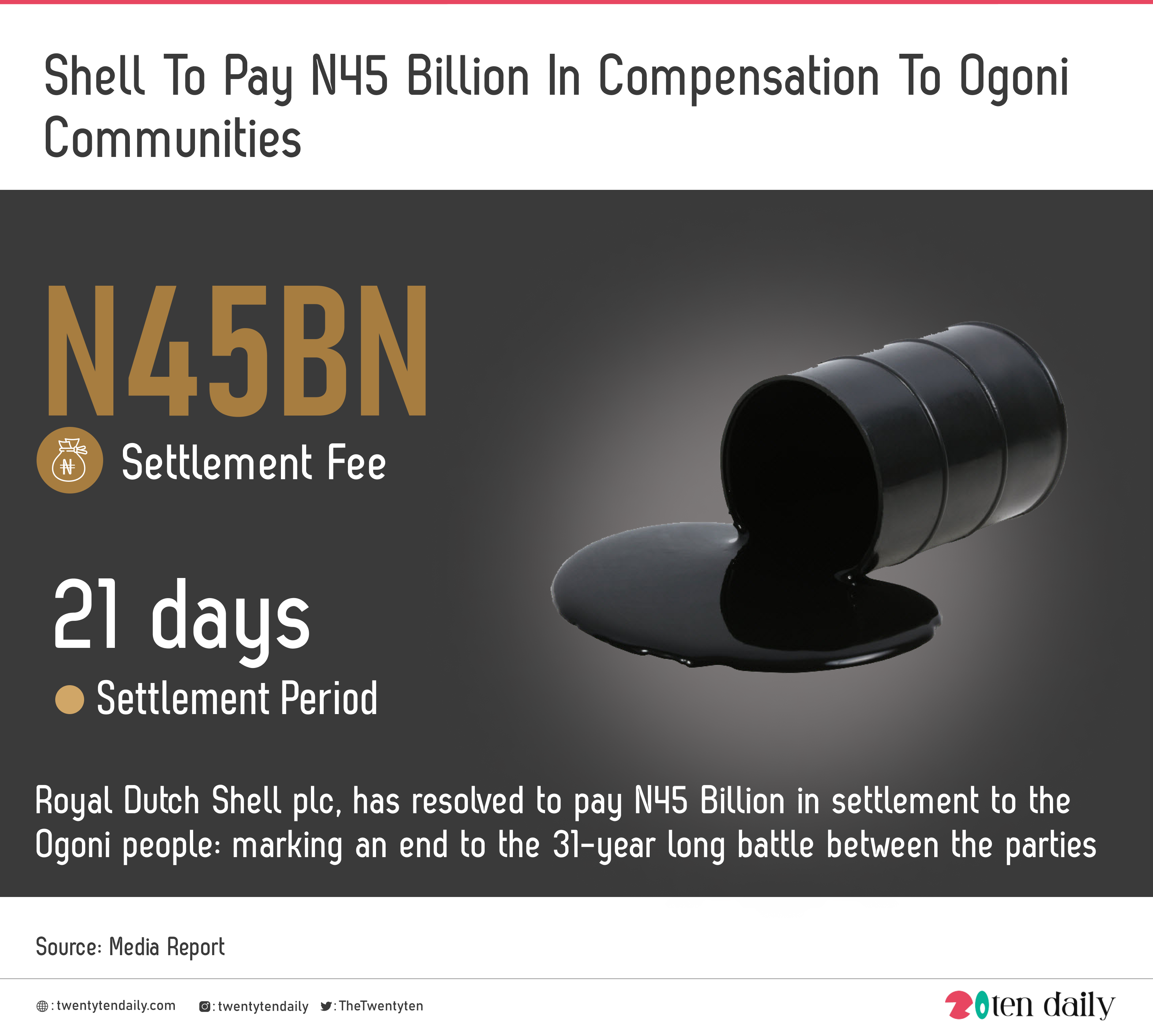Shell To Pay N45 Billion In Compensation To Ogoni Communities
British-Dutch multinational oil and gas company, Royal Dutch Shell plc, has resolved to pay N45 Billion in settlement to the Ogoni people: marking an end to the 31-year long battle between the parties.
The agreement was reached at the order of a Federal High Court in Abuja on Wednesday. Justice Ahmed Mohammed held that the said amount be paid within 21 days.

The sum is a cost awarded against the company several years ago for oil spillage in Ogoniland. The Shell Petroleum Development Company (SPDC) started operations in Ogoni land in Rivers State in 1958.
Counsel to Shell Petroleum Company, Aham Ejelamo, told the court that his client had agreed to make the payment. But he proposed that the money be paid through the Registrar of the court in a bank about to be opened for the purpose.
Justice Mohammed ruled against the request and ordered that the payment be made within the period given through the account of the lawyer to the Ogoni people, Mr Lucius Nwosu.
He explained that this was in line with the decision of both the high court and the Supreme Court.
Ogoniland is located in the southeast senatorial district of Rivers in the nation’s Niger Delta region. Its people share common oil-related environmental problems with the Ijaw people who have been victims of oil spillage for several years.
Their plights caught international attention following a massive public protest campaign against Shell Petroleum Company, led by the Movement for the Survival of the Ogoni People (MOSOP).
The case between the Ogoni people and shell has lasted for about 31 years.
A Lagos Division of the Federal High Court presided by Justice Ibrahim Buba awarded the cost against Shell Petroleum Company in a judgement delivered on June 14, 2010, for the sufferings inflicted on the people of Ogoniland.
After several years of legal tussle, the Supreme Court upheld the judgement of the lower court but Shell Petroleum Company was not satisfied as it sought some considerations.
When the matter came up on Wednesday, Justice Mohammed explained that it would amount to burying the judgement of the apex court to rule otherwise.



